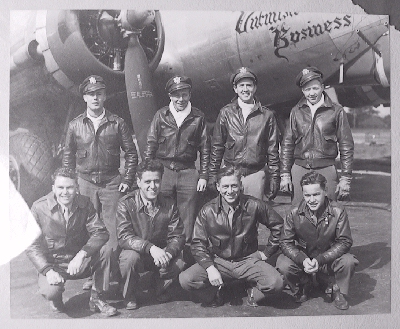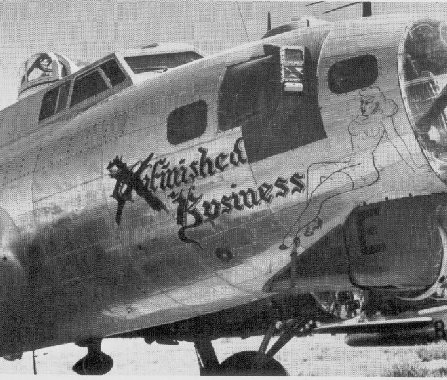Soliloquy 31
On a recent Sunday afternoon it was Ms Keogh's turn
to sit at the Artists' Gallery in Lambertville, New
Jersey. Ms Keogh is my spouse, an artist when she
isn't working as a health care practitioner. She is a
member of the cooperative that operates the Artists'
Gallery on Coryell Street. I came along to keep her
company. Lambertville is a quaint town of galleries
and antique shops. We took turns sitting at the
gallery's desk and watching over the merchandise
while the other took a stroll around town. It was a
perfect day for it, breezy and sunlit. The Delaware
River that separates Lambertville from New Hope,
Pennsylvania was high and excited from the recent
rainfall.
During one of my strolls, I walked over to J. B.
Kline & Son. This is a store that sells toys,
hobby goods, art supplies, and is also the local
stationer. Old Mr George Kline, Jr himself haunts the
store, although younger personnel replenish the stock
and take care of the cash register. And when I walked
into the store, George called out, "Have you
ever seen a shop so full of junk?" I told him
yes, every time I visit his store. I went on to
complain that he always makes me buy something.
Kline's has been forever in the heart of
Lambertville, near to the bridge to New Hope. The
family has been stitched into Lambertville's history
for the last 140 years. "The family migrated
here," George likes to say, "from
Pennsylvania." They have been on this side
of the Delaware River ever since. His family has been
on this side of the Atlantic Ocean since the
eighteenth century, when German Catholics forced his
German Lutheran ancestors to leave Germany.
George has decided to stop selling toys, hobby stuff,
and stationery goods, and to dedicate the shop
exclusively to art supplies. I was thinking he might
not succeed. The art supplies will be too expensive
and folks will venture to the discount art supply
centers even though they are thirty miles and more
away, or order all their needs via the Internet,
which is what many of the regional artists must do.
But I've since had conversations with several local
artists who think Kline's will be a success. Their
reasoning is the superabundance of artists in the
community. And I was reminded of how often artist
found themselves in instant need of something,
something they cannot bear waiting for.
I quickly passed through the narrow front room filled
with toys and modeling tools and kits. I took a
couple of steps down into the backroom to browse the
stationery, looking for forgotten bargains. It was a
much larger room with rows of counters and shelves
stocked with the remnants of a formerly bustling
business, but now with plenty of gaps. The big
stationery chains that occupy the strip malls, places
like Staples and Office Max, are killing the small
shops.
Old George drifted in behind me, turning on more
lights and eager to gab. I had noticed a photograph
on the wall of a B-17 (Flying Fortress) bomber with
most of its crew posing before the airplane.
"Unfinished Business" was painted on the
nose and the photographer was careful, George told
me, to not show the nude that had been painted on the
fuselage. The men were all wearing the same leather
flying jacket that I bought from L.L. Bean. The
picture wasn't there the last time I visited. He
asked me if I could guess which one was him.

On this afternoon I
learned that George had been a pilot during the
Second World War, the captain of Unfinished Business.
There he stood, second from the right in the back
row. I could recognize him, even though it is more
than half a century later.
He flew thirty-five missions with the American Eighth
Air Force, flying out of England for daylight bombing
raids in Nazi Europe, the 487th Bombardment Group
(Heavy). "The Gentlemen from Hell" reads
their patch, a devil in tuxedo. More than once, he
had to wrestle his crippled airplane home, but he
brought his crew safely back thirty-five times. Quite
an accomplishment. Once they had been so badly
damaged, sixty holes in their fuselage, two of the
four engines feathered* and a third beginning to
fail, that they couldn't make it back to their
station at Lavenham in the county of Suffolk.
Instead, they chose the recently liberated airfield
in Rheims. Just missing the towering Cathedral at
Rheims, they discovered at the last possible moment a
bomb-cratered runway being bulldozed flat by heavy
equipment. They couldn't land and had to go around
again, once more nearly toppling the Cathedral.
George brought their bomber down in a muddy field,
sliding to a stop just in front of hangar doors
marked "Achtung!"
In telling me his story, he laughed and remarked,
with tongue in cheek, how he could have avenged his
family on the Catholics. And he considered aloud how,
had he been wicked, his name would have entered
history, infamous for the destruction of the
Cathedral at Rheims.
I was born six years after the Second World War. The
war was close enough in time that it felt
contemporary. The fathers of my generation fought
that war. The father of an elementary school friend,
Jeremy, was among the first who clawed their way up a
beach in Normandy on D-Day. The fact that Jeremy's
father had his heel blown off, was left unconscious
and thought dead, is perhaps the reason he survived.
The father of my childhood friend Scott,was a
photographer during the war. Scott shared with me a
collection of photographs that his father secretly
sent home during the war. Eight by ten glossies were
spilt from manila envelopes and we perused them with
curiosity and horror. They bore images of a real war,
the gruesome results that the public wasn't supposed
to see.
I remain fascinated by the great event on which the
fate of the free world turned and almost was lost. I
was honoured when my next-door neighbour invited me
into his house to see his photographs from the Second
World War. He had been an officer in the Navy. It was
his ship that was to land the invasion force in Japan
and he has no regrets as to the dropping of the
atomic bombs. They did land an invasion force, taking
no chances should the Japanese not live up to the
surrender; there was no army to oppose them on the
beaches. Eventually a few brave Japanese vendors
appeared to sell them fruits.
My life of comfort and freedom are a direct result of
ordinary people who were willing to make
extraordinary sacrifices. These were ordinary people
who risked their lives because of a virtuous sense of
duty. They don't think of themselves braver than the
next average guy, but merely as the ones who were
caught in events and did the job that had been
assigned to them. They did not do it for fame or to
become celebrities. About most other wars i have very
mixed feelings, but I feel tremendous gratitude to
our Second World War veterans and the sacrifice they
made on the world's behalf. I, too, lost family in
the Death Camps.
So, this particular afternoon I made a point of
thanking George Kline for his service, but old George
denied he has been a hero - this despite the fact
that the Distinguished Flying Cross is somewhere lost
among his possessions. Before leaving I bought a bar
of "The Masters" hand soap - removes
grease, paint, stains, inks, and dyes. $2.99.
Epilogue: A search of the Internet turned up a
second photograph of George's airplane, the last
photograph taken before it was scrapped. This time
the nose art was apparent and I got to see the lady.
Someone with a broad brush had crossed out the
"Un" in Unfinished Business.

|